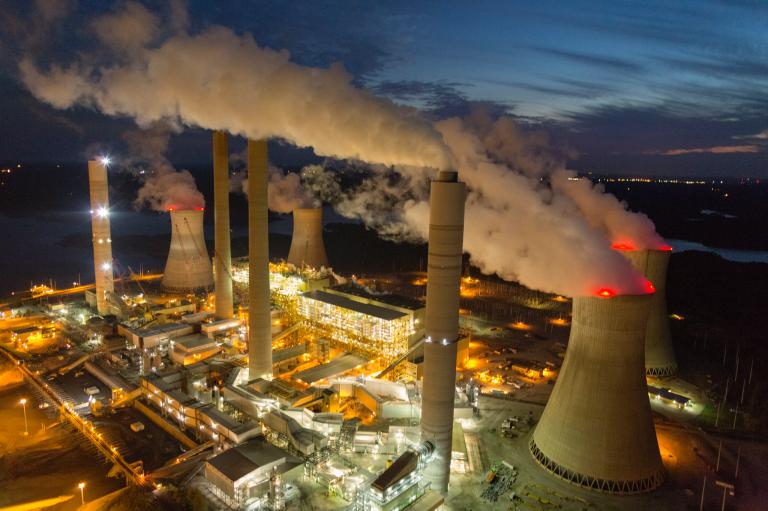- Power Sector Requires $7.5 Billion to be Viable
The Federal Government has said about $7.5 billion funding is needed for the power sector over the next five years, starting from this year till 2021, to make it viable. If achieved, the funding, which is $1.5 billion per year, would enable diversification of the economy and is estimated to drive growth by at least $29.3 billion annually.
The government, which revealed this in the Draft Final copy of the Power Sector Recovery Programme (PSRP) obtained, noted that the sector’s viability would, however, be depended on taking the steps outlined in the plan.
Stating that the power market recorded shortfall of about N473 billion in 2015 and 2016 with tariff shortfall at approximately N458 billion, the 55-page document noted that, at the current tariff level, even with zero collection losses, the sector shortfall was inevitable. “It is therefore paramount that government provides a subsidy (or similar mechanism) to offset the expected shortfall,” the programme suggested, pointing out that, “the longer it takes to increase tariffs, the larger the market shortfall grows.”
According to the document, “ The Tariff Shortfall is due to changes in macro-economic variables, volumetric shock in energy supplied and the costs of interest on non-financed shortfalls via retail tariff sculpting. This has resulted in a shortfall of N458 billion due to Discos from Customers. The market shortfall is due to non-payment of actual MO (market operator) and NBETs invoices by the Discos. This has created a shortfall of N473 billion due from Discos to the market.”
Acknowledging that, “The sector is in transition from government to private-sector owned and operated,” the PSRP stated that, it was therefore, “facing liquidity challenges arising from consumers’ orientation to pay only for what they use, transitional learning, regulatory compliance, forex rate changes and vandalism of power assets that affect production stability and breeds consumer resistance to payments.”
As part of government’s effort to gather financial support for the power sector, the Federal Executive Council, earlier in the year, approved discussions with the World Bank with a view to securing $2.5 billion for the sector. Consequently, the Bretton Woods institution expressed willingness to assist with the financing and two of its arms- International Finance Corporation(IFC) and Multilateral Investment Guaranty Agency (MIGA)- has indicated interest to provide an additional US$2.7 billion for private investment.
Giving a breakdown of the $2.7 billion World Bank support, the PSRP revealed that, $1 billion is a performance-based loan for financial support to eliminate cash flow deficits; $500 million for loss reduction in distribution including metering and $364 million would be used as a support to Transmission Company of Nigeria to finance its priority projects.
While $350 million is a potential funding for rural electrification initiatives, $305 would serve as guarantees.
For the IFC investment, $1.3 billion is being expected as a direct investment and mobilisation for power sector for additional 3.5 gigawatts (GW) of power generation as well as investments in distribution companies. The remaining $1.4 billion to be provided by MIGA is planned as guarantees for both gas and solar IPPs.
In its introductory note, the PSRP document stated that the recovery programme was developed in view of the urgent need to address the dire challenges within the Nigerian Electricity Supply Industry (NESI).
In stating the challenge, the document lamented that, from being an investment destination sought after in 2013 – both at home and abroad, the NESI had fallen out of favour.
“With the recent meetings in Abuja of the DFI/MDBs over issues concerning the currency redenomination of the Put-Call Option Agreement (PCOA), there now remains only 2 dependable sources of financing for the NESI: NGN – The Central Bank of Nigeria (CBN) USD – The World Bank Group (WBG).
“A bold turnaround plan is now required to utilise current assets and resources optimally, and to restore investor confidence in the sector, required to deliver the planned sector reforms,” it stated.
As such, the key objectives of the PSRP are: “To improve power supply reliability to meet growing demand; to strengthen the sector’s institutional framework and increase transparency; to implement clear policies that promote and encourage investor confidence in the sector; and to establish a contract-based electricity market.”
To this end, the document highlighted the key deliverables as: “Dimensioning accumulated deficit (2015, 2016) and future shortfall (2017-2021); Developing mechanisms for settlement of accumulated debt; Developing interventions to minimise subsidy going forward; Restoring sector financial viability; Ensuring Disco loss reductions; Identifying funding sources; Addressing infrastructure gaps; Addressing gas pipeline vandalism; Enabling electricity market business continuity; Developing a communications strategy for stakeholders.”

 Naira4 weeks ago
Naira4 weeks ago
 Naira4 weeks ago
Naira4 weeks ago
 Travel3 weeks ago
Travel3 weeks ago
 Jobs4 weeks ago
Jobs4 weeks ago
 Naira3 weeks ago
Naira3 weeks ago
 Naira3 weeks ago
Naira3 weeks ago
 Investment4 weeks ago
Investment4 weeks ago
 Travel4 weeks ago
Travel4 weeks ago




























